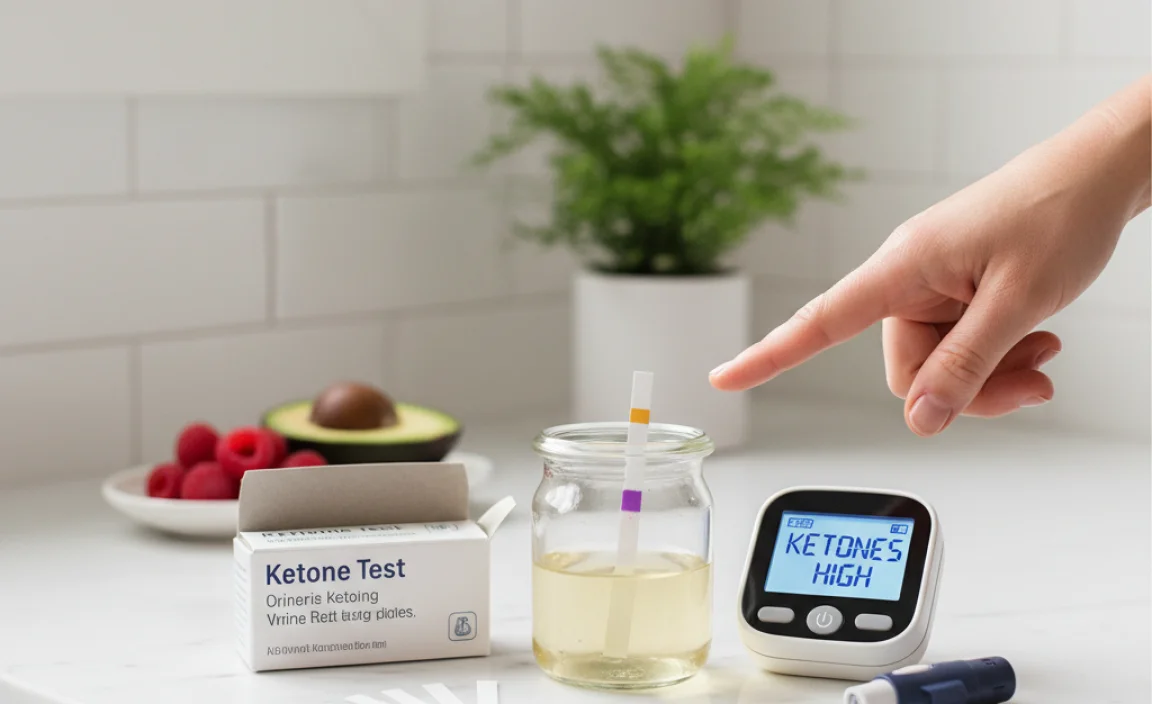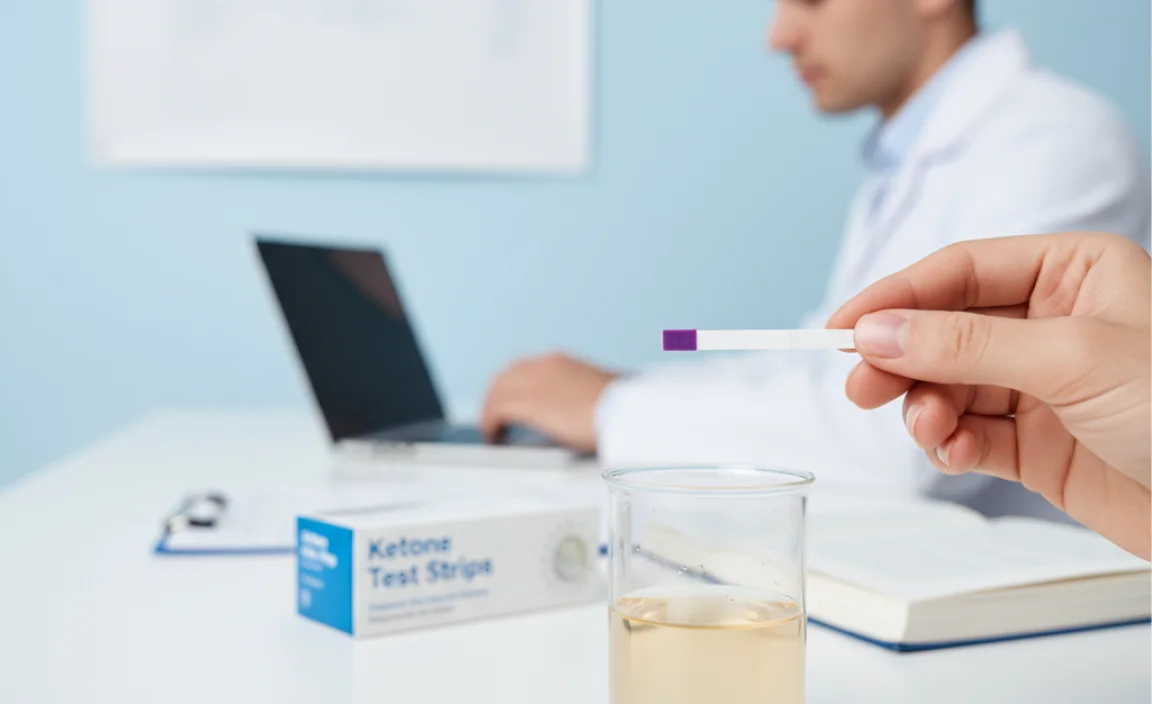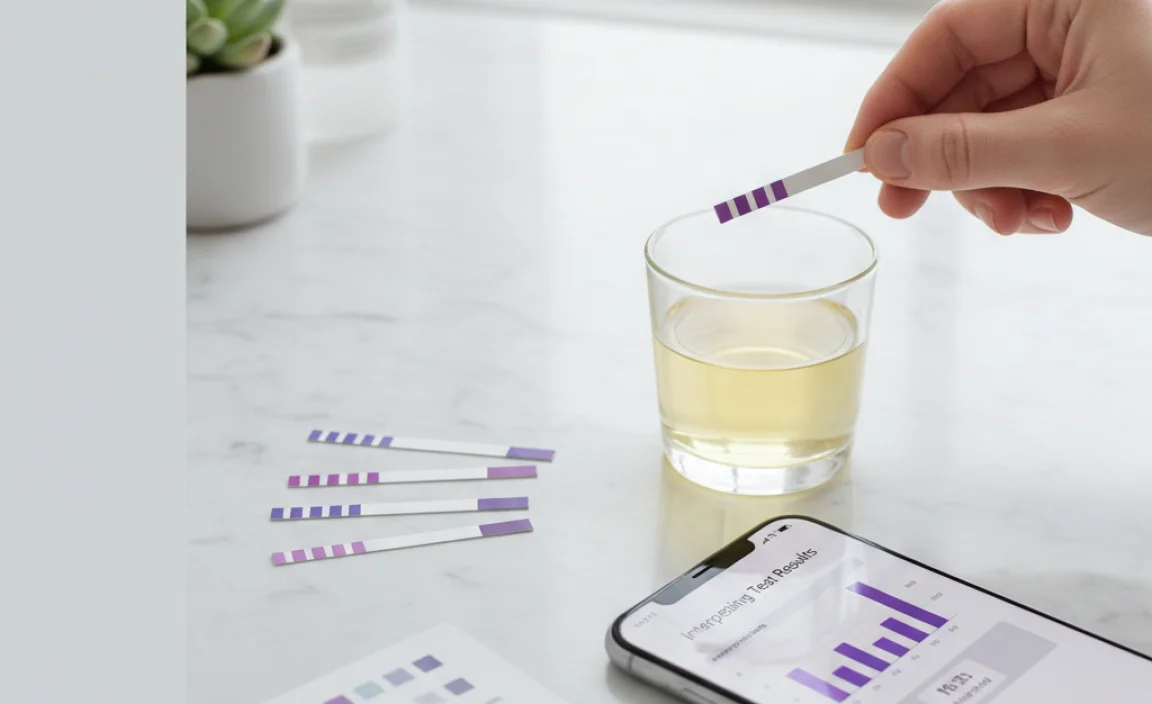Have you ever wondered how your body uses fat for energy? It’s fascinating! When your body doesn’t have enough sugar, it uses fats instead. This process creates substances called ketones. But how can you tell if you have ketones in your urine?
Many people following certain diets want to know if they are in a state called ketosis. They might ask, “Is my body burning fat effectively?” A simple way to check is by testing your urine. Urine tests can reveal the presence of ketones, giving you a clear answer.
Imagine you just finished a big workout. You feel great, but how do you know if you’re in ketosis? Learning about ketones in urine can help you understand your body better. You might even be surprised at what you discover!
In this article, we’ll explore how to tell if you have ketones in your urine. You’ll find easy ways to test yourself and tips for better health. Ready to dive in and learn more?
How To Tell If You Have Ketones In Your Urine: Tests And Signs

How to Tell if You Have Ketones in Your Urine

Wondering if you have ketones in your urine? It’s easier than you think! One way is to use simple test strips, available at pharmacies. Just dip the strip in your urine, and within minutes, you’ll see a color change. This shows how many ketones are present.
Did you know that having ketones can mean your body is burning fat for energy? This often happens during low-carb diets. Keep an eye on your test results to stay informed about your health!
Understanding Ketones

Definition and types of ketones. Importance of ketones in metabolism.
Ketones are molecules made during fat breakdown. The body produces three types: acetoacetate, beta-hydroxybutyrate, and acetone. These are important for energy, especially when the body doesn’t have enough sugar. They help fuel the brain and muscles during fasting or low-carb diets. Ketones show how well the body uses fat for energy.
What are the types of ketones?
- Acetoacetate
- Beta-hydroxybutyrate
- Acetone
Why are ketones important?
Ketones are vital in metabolism. They provide energy and support the brain when sugar is low.
Why Test for Ketones in Urine?

Significance of ketone levels for health. Conditions that lead to elevated ketone levels.
Testing for ketones in urine is important for your health. Ketones are chemicals made when the body burns fat for energy instead of carbs. High levels of ketones can mean your body isn’t getting enough sugar. This can happen in certain conditions, such as:
- Diabetes.
- Starvation.
- Low carbohydrate diets.
Checking ketone levels can help detect issues early. It’s a simple way to keep track of your health. If your levels are too high, you can take steps to fix it.
Why is it important to know your ketone levels?
Knowing your ketone levels helps you stay healthy. Regular testing can prevent serious problems and guide your diet choices.
Interpreting Test Results

Normal levels vs. elevated levels of ketones. Potential health implications of varying ketone levels.
Understanding your ketone test results can be quite a ride! Normal ketone levels are usually low, meaning your body is happily using sugar for energy. However, if the levels are high, it might indicate your body is burning fat instead. This can happen during fasting or with certain diets.
So, why does this matter? Elevated ketone levels can trigger symptoms like dehydration or, in serious cases, diabetic ketoacidosis. In plain words, too many ketones can turn you into a thirsty grape! Here’s a simple table to help you decode your results:
| Ketone Level | Condition |
|---|---|
| Normal | Low levels, body is balanced. |
| Elevated | Potential health concerns, stay hydrated! |
Keep an eye on those levels, and remember, being in tune with your body can be as fun as a roller coaster ride!
Symptoms of Ketosis
Common signs and symptoms to watch for. How symptoms correlate with ketone levels.
When your body is in ketosis, it means it’s burning fat for energy. Several signs can show you this is happening. Common symptoms include:
- Bad breath, often fruity or sweet
- Increased thirst and dry mouth
- Frequent urination
- Fatigue or low energy
- Lack of appetite
These symptoms can relate to your ketone levels. When ketone levels rise, these signs may become stronger. If you notice these symptoms, you might want to check for ketones in your urine.
How do you know if you are in ketosis?
If you have symptoms like bad breath or frequent thirst, you might be in ketosis. Testing your urine for ketones can help confirm this. Look for a color change in the test strip for a positive indication.
Maintaining Healthy Ketone Levels
Dietary recommendations to manage ketone production. Lifestyle factors that influence ketone levels.
Eating well can help keep your ketone levels healthy. Choose foods that are low in carbs, like vegetables and healthy fats. This aids in managing how your body produces ketones. Some important tips include:
- Eat lots of fresh vegetables.
- Enjoy healthy fats like olive oil and nuts.
- Limit sugary snacks and drinks.
Your daily habits matter too! Staying active and drinking enough water can help control your ketone levels. A fun fact: even a short walk can boost your energy and keep ketones in check!
What lifestyle changes can help manage ketone levels?
Exercise regularly, stay hydrated, and eat a balanced diet. These changes can help stabilize your ketone levels and support your overall health.
When to Consult a Healthcare Professional
Warning signs that require medical attention. Recommended followup actions for abnormal results.
Some signs mean it’s time to see a doctor. If you notice these, don’t wait:
- Fruity-smelling breath
- Extreme thirst
- Frequent urination
- Confusion or trouble concentrating
If your test shows a lot of ketones, you should follow up. Talk with your healthcare provider. They can give you tips on what to do next. It’s better to be safe!
What should I do if I find ketones in my urine?
Consult a healthcare professional for guidance. They can help you understand what it means for your health.
Conclusion
In summary, you can tell if you have ketones in your urine by using test strips or signs like fruity breath. These methods help you check if your body is in ketosis. If you’re curious about your ketone levels, consider getting a urine test. Keep learning about ketosis and its effects to stay informed and healthy!
FAQs
Here Are Five Related Questions About How To Tell If You Have Ketones In Your Urine:
To tell if you have ketones in your urine, you can use special test strips. You pee on the strip, then check the color. If the strip changes to a certain color, it means you have ketones. You can also see if you feel really thirsty or tired, which might be signs of ketones. If you’re not sure, ask a doctor for help!
Of course! Please provide the question you’d like me to answer.
What Are The Signs And Symptoms That May Indicate The Presence Of Ketones In Urine?
If ketones are in your urine, you might notice some signs. You could feel very thirsty and need to drink a lot of water. You may also feel really tired or have a dry mouth. Sometimes, your breath can smell fruity or sweet. These are all signs that ketones might be in your pee.
How Can I Test For Ketones In My Urine At Home?
You can test for ketones in your urine at home using special strips. First, buy ketone test strips from a store or online. Then, you wet the strip with your urine. After a few seconds, check the color on the strip. Compare it with the color chart on the package to see if ketones are present.
What Does A Positive Ketone Test In Urine Indicate About My Body’S Metabolic State?
A positive ketone test in urine means your body is using fat for energy instead of sugar. This can happen when you’re not eating enough carbs, like when you’re on a special diet. It shows your body is in a state called ketosis. In ketosis, your body makes ketones from fat, which can be used for energy. This is common when people want to lose weight.
Are There Specific Dietary Guidelines I Should Follow If I Have Ketones In My Urine?
If you have ketones in your urine, it’s important to eat balanced meals. You should have more healthy foods like fruits, vegetables, and whole grains. Drink plenty of water to stay hydrated. Avoid sugary snacks and drinks, as they can raise your blood sugar. It’s also good to check with a doctor or a nutritionist for personal advice.
When Should I Consult A Healthcare Professional Regarding Ketone Levels In My Urine?
You should talk to a healthcare professional if you see a lot of ketones in your urine. This can happen if you are very sick or if you have diabetes. It’s also important if you feel really tired or thirsty. They can help you understand what’s going on and keep you safe.








